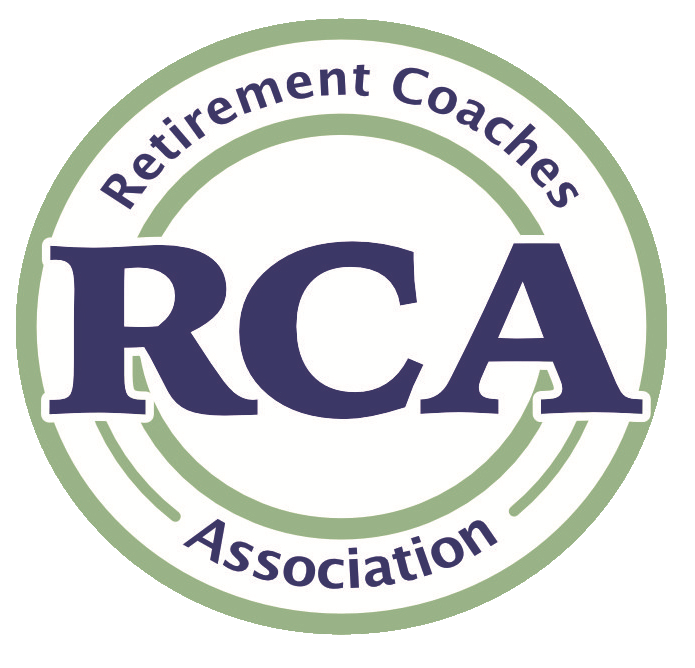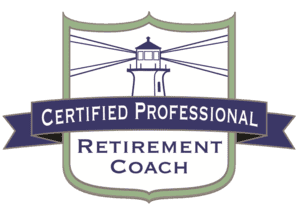This topic is rather provocative, disruptive and action based. It highlights the generational struggles of the aging “Baby Boomers” population, while also giving some wild-eyed wisdom on how to deal with the 65-year-old corporate “expiration date” assigned to us all—ageism—and what to do about it.
Recently, I had the privilege of contributing to a Retirement Coaches Association thought leaders’ publication, “Right Sourcing Retirement”, with a chapter entitled “Succession Planning is Dead, Long Live Legacy Transition”. In my chapter, I documented my personal succession pathway leading from a C-level executive to newly minted consultant and everything in between.
Starting over
Little did I know that my decision to forgo my multi-decades in corporate life and embrace a road less traveled would lead me on an adventure that terrified, excited, and educated me on what society has labeled the “Retirement Years”, which in effect is really a restart to your life that you did not plan on. For you see, once you strip yourself of your work identity—either by your choice or not—what is left is you starting all over again.
Wait, what?
That’s right, the warm cocoon of the corporate mothership gives you a nice Friday afternoon breakroom sendoff. HR follows you down to the garage and waits for you to insert your parking card in the exit portal for the last time. As you exit, the IT department has blocked your access to years of your emails. And that corporate ID in your wallet is now nothing more than extra padding, as it no longer gives you access to the kingdom. You, my mature relational friend, have been totally and methodically transitioned by the transactional workplace.
Welcome to retirement, a.k.a. the hinterland
But you don’t care, as you look forward to trips you have lined up, old friends you plan to look up and a new life filled with a whole lot of nothing to do! You are on your Retirement Honeymoon!
You begin your first-class voyage either with your spouse or without, depending on your matrimonial status and/or their employment status. You go to your various destinations and connect with old friends who preceded you in retirement and instead of endless celebrations, you find yourself listening to some rather sobering advice from those that came before you.
You hear that they have not saved enough for this Baby Boomer Bash, better known as retirement, and they have had to find work not as a re-entry corporate executive, but as that third shift Amazon package warrior or the early morning greeter at Walmart or, better yet, an Uber driver hauling around late-night Millennials.
Undaunted, you continue along in your travels and find much the same at all your stops. Those corporate friends you idolized as business gods are now nothing but service industry goats.
Stunned, you return home to ponder your future each morning, seeking guidance from watching Steve Harvey on Family Feud. You follow this with a daily lunch therapy session with Julie the bartender, whose advice gets better with every drink. And then onto the comfy couch for a delightful late afternoon nap, only to be interrupted by your spouse just returning from their job and wanting to know what you did today.
This behavior, if you can call it that, goes on for weeks. You begin to put on weight. You begin to supplement Family Feud with applying for several corporate jobs online but to no avail. Your former work friends slowly stop interacting as does your spouse. You, my friend, are in retirement hell, and you have no idea what to do next.
Taking the fight to ageism
Let us stop here and press the reset button and understand what put you here. Explore your options on how to become purposeful, useful, and productive once again.
Ok, what should I do differently?
First, understand that if you want to stay in corporate life, you will need to FIGHT AGEISM. How? Remove that embedded scanner slick on your forehead that translates into “expires at age 65”.
- Embrace lifelong learning, not hierarchical power. Understand and take advantage of your age status benefits, such as free or half-price college courses for seniors.
- Look for the right certification programs that address your needs through the correct national associations.
- Do not be afraid to ask your company’s training professionals where they would go to get the new knowledge base you seek.
- Business today is run by teams, so decide your niche and become educated in it to the point of being an expert.
- Become known for what you know and contribute, not what your title is. Act as a teammate and impart your experiential wisdom as a mentor, not as a boss or worse, an autocrat.
Why? Because you need to adapt to the new workforce culture, and that will depend on your ability to effectively communicate via Zoom or text efficiently (no run-on sentences) or to simply get things done independently.
Redefine yourself by your value
You must reassert yourself as an associate that brings value to the group so the group can benefit from your contribution and become your champion.
Your group will reflect the diversity of today’s workface, in color, gender, age, sexual orientation, religious beliefs, and lifestyle. You must own your specialty category. Your “mature age” category no longer has any weight to it. It must be invisible, if you want to stay.
The rules of engagement have changed. So much so, your corporate office may be done away with, and you may find yourself working from home, which then brings a need for you to understand how to communicate effectively to a virtual team. You may find that to be successful, your digital skills are now the driver, rather than the strength of your personality.
All the things that you abhorred in your millennial-aged children’s attitudes and behaviors now permeate the corporate culture. Embrace it or be gone.
- You may reach the point where you say to yourself, “do I really want to do this?”
- Do I really want to live in this new corporate world where the 40+ year old leadership is driven by innovation and metrics? (At first, this seemed foreign to you, but in time, you find your niche and become accepting and accepted.)
- You also begin to accept the fact that you cannot stay forever so it is time for you to approach the company. The more enlightened companies have now added another category in their succession planning process.
Meet phased retirement
These companies see the value of the 65+ work group and have set up a pathway for these highly trained and loyal employees to be transitioned into their second half of life work life as a senior sub or project master.
These companies recognize that it pays big dividends to stay engaged with these “wisdom-filled employees” who welcome the opportunity to take on a 16-week project assignment. Or being a temporary replacement for someone who unexpectedly left the company’s employment. Or simply they just needed to be around on a new team to be a mentor while holding down a needed operational project spot.
People who occupy these positions are in a whole new pay grade which is fair both to the company and the newly minted operational project manager. When people are paid fairly and in line with the work they do, the economic reasons to remove them fade and ageism is defeated. These companies are the minority, but they are also some of the most successful and sustainable. The reason – they value diversity in all forms as well as inclusion and do not allow for any ageism practices to seep into their culture.
But if your company is not one of the more enlightened ones, keep reading.
Looking for greener pastures? Start networking.
You will probably find your network is either gone or unable to help as they do not understand what you are asking for. You then start your new job search by redoing your résumé and reacting to job postings on several job boards in hopes that one will come back positive. Rarely does that happen.
Why? Because most companies now use Facebook, LinkedIn, and their company website to announce job opportunities. And if you apply, the first thing they do is checkout your Facebook, LinkedIn, or personal website. They want to see who you are, what you have done, who you interact with and maybe even what you write about in your blogs.
Your digital world experience is slowly replacing that tried-and-true résumé as the gateway to opportunity. Today headhunters do not have the time, nor the inclination, to talk to you over the phone. They very pointedly dwell in the digital world to find, assess, and contact candidates with a request for a prerecorded video initial interview. Even Talent Acquisition has gone completely digital, making sure you match up metrically first and then maybe relationally later, depending on their corporate culture.
So, you find yourself trapped! Because although you may have a way to exit your company gracefully tethered to it as a consultant, the price of freedom is that you must stay a year for several knowledge transfer sessions with your successor. But you still are not sure.
Open yourself to new possibilities
Stop! You are not trapped. You are simply in an ageism transition, and you need to open yourself up to a new world of possibilities. Let us hit the pause button, and in your new phase of life ask yourself the following questions.
- What kind of lifestyle do I want to lead?
- Where do I want to live?
- Do I need to downsize to afford or engage in this new lifestyle?
- And you need to ask an ageism question: what kind of community do I want to live in? Will it be 55+ or will it be a generationally mixed environment, or do I need to renovate our suburban McMansion into a multi-generational community?
Why? Because Millennials see no reason to pay the exorbitant inner city rent to be close to work, as work now is done and will be done permanently from home. Junior (mid 30’s) then goes a step further and proposes a rather outlandish strategy: that we refinance our home jointly to pay for the renovation that reconfigures things into a jointly owned, multifaceted facility housing grandparents to work occasionally and to be full time daycare or educational attendants.
The Millennials start their families while working from home as they now will pay for 75% of this new housing arrangement. And in a few cases, the grandparents (us) may also have to care for their aging parents in this new housing arrangement.
So, what has started this outlandish thought process? The COVID-19 pandemic has got everyone from board chairs to daycare providers reassessing their worlds and trying to decide what their futures will look like. It has brought people together who until recently were located apart and, in some cases, separated by thousands of miles some even by continents.
Many have come home as they have figured out they work remotely, so what does it matter where I work from? I need to be around people I love and who love me as the future is very uncertain.
The warmth of the family becomes especially important as does the sharing of financial and task-oriented living requirements. This is the new version of the old three-decker immigrant lifestyle where one home sheltered various family members for survival. We may be at that point again. Only this time, we do not live in ethnic enclaves but rather in multipurpose and multi-generational suburban housing.
Possibility #1 – Consulting work
You already have your first client who is your current employer. Start to nose around through friends at other places that do not compete directly with your current employer. Have physical or virtual lunches for leads and see if you can line up a few more companies that need your expertise. If you do it right, you may only need 5 or 6 clients to garner the kind of money you need. And most importantly, be ready to consult remotely. Hand in your work product via PowerPoint while you participate and present occasional consulting project updates via Zoom. Remember Dragnet and Joe Friday? “Just the facts, ma’am.” Remember metrics and productivity, not relational brainstorming.
Possibility #2 – Family business
The scourge of ageism discrimination and the redesigned and lesser-populated workplace through the COVID-19 transition will give rise to the popularity of the family business out of economic necessity.
Business learned many things as it navigated the COVID-19 waters. They learned that hierarchy is not important; in fact, it gets in the way. People are more productive working from home virtually, thus fewer people are necessary. The company then saves voluminous dollars not housing everyone centrally. In fact, we will begin to see growth in people contracted for projects or consulting work and far less being permanently hired. Again, less cost, higher productivity, and greater shareholder value.
So as that sorts itself out, families come together and develop “what-if strategies”. What if Dad or Mom at 67 gets laid off? Or what if a Millennial is asked to only do limited project work? Or what if Gen AA needs to be schooled from home? The list of possibilities goes on, depending on your personal situations. These considerations are what will give rise to families taking all their 401ks or IRAs and bank accounts and rolling them over into a new joint financial product called a Family Equity Investment Fund. The purpose of said fund is to help the family invest in businesses that they run as a family, to give the family income that will cover their joint living expenses, the ability to recover their investment capital and the ability to save for economic downturns, as well as other family needs, such as children’s education etc.
Families will gravitate towards three models to begin these businesses by an acquisition of an existing business. Investing in a franchise business model. Or doing a ground up startup by themselves. My bias is investing in a franchise model as it gives the family structure, support, good growth potential and a world of possibilities. Franchising also gives the family the ability to start several small businesses that are complementary and not directly competitive in nature. This gives the family the ability to cast a larger net and use family members in a series of roles to support several of their businesses.
Main Street will give Wall Street a run for its money as most of the workforce will be housed for employment in the suburbs, thus making Main Street businesses just as accessible as online outlets. People will begin to feel an obligation to support the neighborhood businesses as the economic livelihood of the community will determine said community’s value and economic worth. In other words, investing in my Main St. will keep my neighborhood vibrant and viable.
Possibility #3—Work-skilled co-ops and guilds
With the rise of project work, people who do not choose the family model will come together and form work skilled co-ops or guilds. These co-ops will bring together highly skilled individuals who share a common skill like accounting, human resources, marketing, sales etc. to bid on several large project contracts with various companies.
This new model may happen at first in local pockets, but eventually will be organized and facilitated by entrepreneurial-minded people out of the Staffing world. The highlight of this concept is that ageism will not enter the equation as the company only will care about productivity, not who completes the projects. And most of these workers will work from home, thus never being seen outside of their work groups on Zoom.
Possibility #4 –Facilitator of business knowledge
With the need for seniors to re-educate themselves and devote themselves to lifelong learning, educational facilitators will be needed. And who better than the ones with the greatest wisdom? In other words, peer teachers or seniors who accept the premise that they must reeducate themselves and then feel compelled to reeducate their peers as their new purpose in life. Shifting from business leader to a facilitator of business knowledge will help keep them continually employed. The trick is accepting that in order to properly educate their peers, they will also have to reverse roles and become students on a regular basis. Sponsoring these jobs will be through community colleges, continuing education outlets, industry certification classes and various specialty outlets that will emerge to fill a gap. Many of these jobs will be online. Some will be interactive, some one-way instruction and some only in print, but all will be online for the convenience of the student and their price point.
Possibility #5 –Retirement coach
Help guide those afflicted by the scourge of ageism in their fifties by positively helping them to plan for their Second Career Sixties, the Bucket List Seventies, the Aches, and Pains Eighties and if they make it this far, their Last Hurrah Nineties. If they exceed their Nineties and become centenarians, there is no need for further planning as they have the best plan of all. Good family genes, living a healthy lifestyle and not letting stress into their lives. They do not need a Coach they need an award!
Ageism is the new diversity and inclusion frontier
Ageism is a problem today in our workplaces but if you feel affected by this there are legal avenues. My advice is rather than get involved in a protracted legal fight, outsmart the offenders and either become more competitive and contemporary, or open yourself up to the world of possibilities rather than the world of confrontation.
Stay open and stay positive—you will live longer, happier and you will simply be more satisfied.
About Bob Foley
Bob Foley is your Retirement Lifestyle Coach and you can reach him by email at bob@retirementlifestylecoach.com or simply by scheduling time on his calendar.




